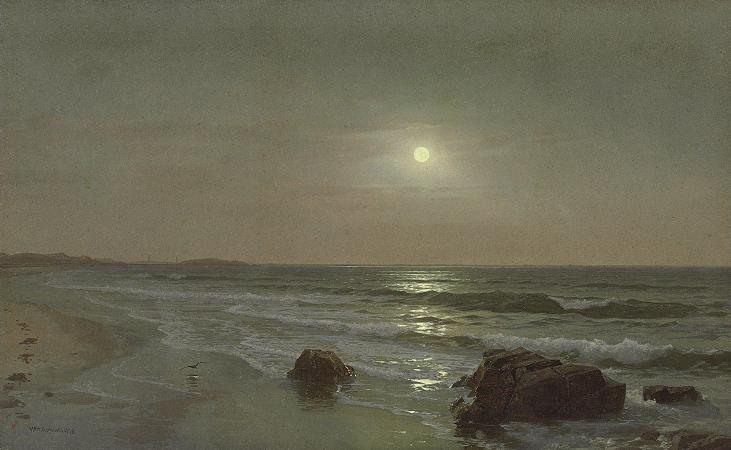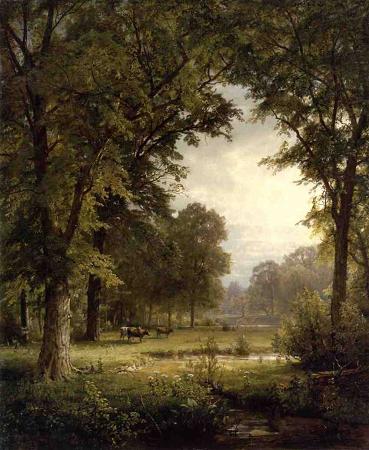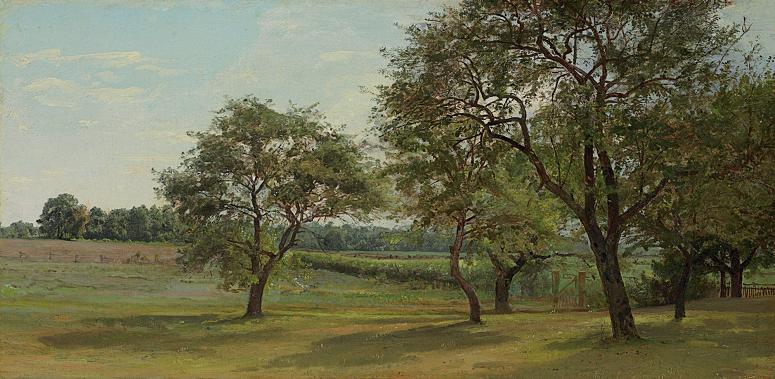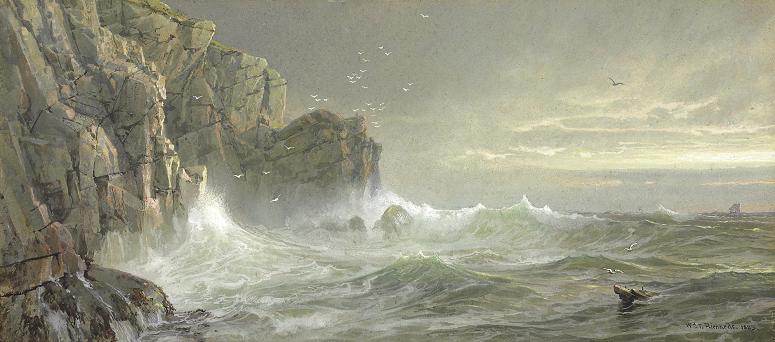William Trost Richards (1833 - 1905). William Trost Richards was an American landscape artist. He was associated with both the Hudson River School and the American Pre-Raphaelite movement. William Trost Richards was born on 14 November 1833 in Philadelphia, Pennsylvania. In 1846 and 1847 he attended the local Central High School. Between 1850 and 1855 he studied part-time with the German artist Paul Weber while working as designer and illustrator of ornamental metalwork. Richards first public exhibit was part of an exhibition in New Bedford, Massachusetts, organized by artist Albert Bierstadt in 1858. In 1862 he was elected honorary member of the National Academy of Design, and was elected as an Academician in 1871. In 1863, he became a member of the Association for the Advancement of Truth in Art. In 1866, he departed for Europe for one year. Upon his return and for the following six years he spent the summers on the East Coast. In the 1870s, he produced many acclaimed watercolor views of the White Mountains, several of which are now in the collection of the Metropolitan Museum of Art. Richards exhibited at the National Academy of Design from 1861 to 1899, and at the Brooklyn Art Association from 1863 to 1885. He was elected a full member of the National Academy in 1871. In 1881 he built a house in Jamestown, Rhode Island, where he lived and worked the remainder of his life. He died on April 17, 1905 in Newport, Rhode Island. Richards rejected the romanticized and stylized approach of other Hudson River painters and instead insisted on meticulous factual renderings. His views of the White Mountains are almost photographic in their realism. In later years, Richards painted almost exclusively marine watercolors. His works are featured today in many important American museums, including the National Gallery, the Saint Louis Art Museum, the Smithsonian American Art Museum, the Wadsworth Atheneum, the Philadelphia Museum of Art, the Yale University Art Gallery, the High Museum of Art, the Museum of Fine Arts, Boston, the Fogg Art Museum, the Brooklyn Museum of Art, the Berkshire Museum, the Thyssen-Bornemisza Museum and Crystal Bridges Museum of American Art. His daughter Anna Richards Brewster also became a painter.
more...













